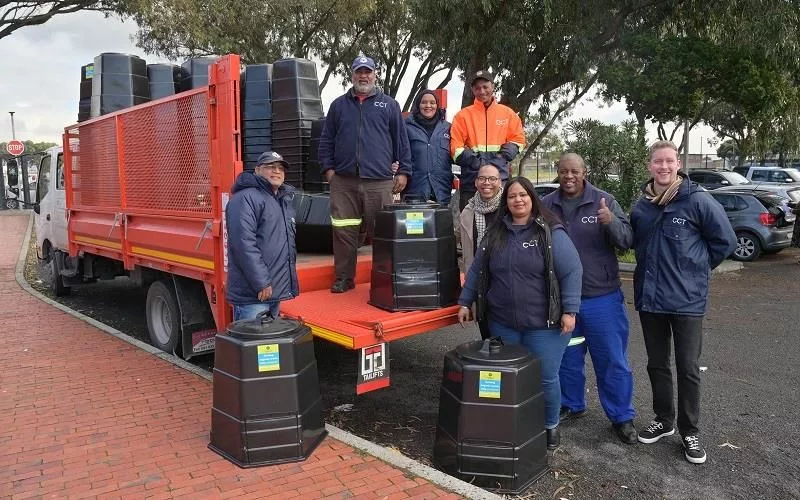Deputy President Paulus Mashatile engaged in meaningful discussions with representatives of various faiths in Cape Town, showcasing his respect for the religious leaders and their role in society. South Africa’s journey towards democratisation has been challenging, but the interfaith community has emerged as a beacon of hope, advocating for a society where every religion receives equal regard. Mashatile addressed pressing issues such as drug abuse and land redistribution, pledging to work towards a shared goal of a better South Africa for all.
Deputy President Paulus Mashatile’s dialogue with the interfaith community highlights not only a leader’s dedication to his nation but also the strength of unity in diversity. His efforts depict the evolution of a unified South African narrative, where every faith is valued, every voice is acknowledged, and every citizen plays a crucial role in the nation’s progress.
Deputy President’s Dialogue with Interfaith Communities
At the heart of Cape Town, in the lively Cape Sun Hotel, a recognisable figure makes his way on the stage. His imposing presence and confident stance are a testament to his leadership qualities. This is Deputy President Paulus Mashatile, a man who serves his nation with steady commitment and an entrenched belief in unity and progression. His purpose here is to engage in meaningful discussions with the representatives of various faiths in the Western Cape.
This interaction is not a solitary occasion, but a reflection of Mashatile’s consistent engagement since his tenure began. It showcases his respect for the religious leaders, whom he sees not merely as spiritual guides, but as pillars of society. Their acts of compassion, their day-to-day engagement with communities, and their constant pursuit of social progress have earned them a unique place in Mashatile’s esteem.
Journey of South African Democracy
If one were to map out the development of South African democracy, it would be a path that unfolds from the suffocating grip of apartheid, through the liberating pathways of unity, to the colourful landscape of various faiths. This journey has been demanding, with massive obstacles to overcome and dark periods to clear. However, the combined strength of South Africans, strengthened by their varied faiths, transformed the seemingly unachievable into a reality.
In this journey, the interfaith community emerged as a beacon of hope, intertwining the strands of diverse faiths to dispel the gloom of apartheid. They stood firm against the apartheid era‘s unjust precedence of Christianity, advocating instead for a society where every religion receives equal regard. Today, they are the carriers of an era where individuals from diverse backgrounds unite to achieve remarkable feats.
As Deputy President Mashatile articulates, “Today, we have Chapter 2 of the Constitution, the Bill of Rights, which acknowledges that everyone has the right to freedom of religion. Section 9, the equality clause, prevents unfair discrimination on various grounds, including religion.” His words mirror a government that matches the commitment of the interfaith communities in safeguarding the rights of all individuals, irrespective of their belief systems or religious affiliations.
Challenges and Solutions
The South African journey towards democratisation has not been devoid of hurdles. From gender-based violence and unemployment to drug abuse and high HIV infection rates, the nation confronts a plethora of difficulties. Yet, Mashatile remains hopeful that collective effort and unity can address these issues, just like they helped overcome apartheid.
Drug Abuse
One such challenge is the alarming rise in drug abuse and addiction. Mashatile appeals to the interfaith community to intervene: “As interfaith communities at the forefront of society, it is your duty to organise social activities and community outreach programs for young people.” He perceives a critical role for the religious community in moulding young people’s behaviour, encouraging positive action, and promoting moral values.
Land Distribution
Another pressing issue is the fair distribution of land. The unresolved issue of land rights, a remnant from the apartheid era, continues to torment the people of South Africa. Mashatile assures the interfaith leaders that the government is taking active measures towards land redistribution, acknowledging the crucial role of ancestral land rights in the cultural and social tapestry of South African society.
Deputy President’s Reassurances
The Deputy President also addresses concerns raised by interfaith leaders about by-laws, access to public land and facilities for religious purposes, and the empowerment of religious leaders to serve as Commissioners of Oaths and Marriage Officers. He pledges to examine these matters and find an agreeable solution, demonstrating a readiness to consider the viewpoints of the interfaith communities and work towards a shared goal.
Closing Remarks
As the meeting draws to a close, Mashatile surveys the assembled religious leaders, a vibrant mix of various faiths united by a shared purpose. He urges them to leverage their influence to encourage tolerance, cultivate peace, and pray for peaceful elections. His parting message is heartfelt: “Let us move forward in the spirit of collaboration and mutual understanding, for we share a common responsibility and aim: to achieve a better South Africa for ourselves, for our children, and for the generations to come.”
Deputy President Paulus Mashatile’s dialogue with the interfaith community highlights not only a leader’s dedication to his nation but also the strength of unity in diversity. His efforts depict the evolution of a unified South African narrative, where every faith is valued, every voice is acknowledged, and every citizen plays a crucial role in the nation’s progress.
1. Who is Deputy President Paulus Mashatile?
Deputy President Paulus Mashatile is a leader who serves his nation with steady commitment and an entrenched belief in unity and progression. He engaged in meaningful discussions with the representatives of various faiths in Cape Town, showcasing his respect for religious leaders and their role in society.
2. What is the interfaith community’s role in South Africa’s democratisation journey?
The interfaith community emerged as a beacon of hope in South Africa’s journey towards democratisation, intertwining the strands of diverse faiths to dispel the gloom of apartheid. They stood firm against apartheid’s unjust precedence of Christianity, advocating instead for a society where every religion receives equal regard. Today, they are the carriers of an era where individuals from diverse backgrounds unite to achieve remarkable feats.
3. What challenges does South Africa face in its progress towards a better future?
South Africa confronts a plethora of difficulties, including gender-based violence, unemployment, drug abuse, and high HIV infection rates.
4. How does Deputy President Paulus Mashatile address drug abuse?
Deputy President Paulus Mashatile appeals to the interfaith community to intervene in drug abuse by organizing social activities and community outreach programs for young people. He perceives a critical role for the religious community in molding young people’s behavior, encouraging positive action, and promoting moral values.
5. What is the Deputy President’s stance on land redistribution?
Deputy President Paulus Mashatile assures the interfaith leaders that the government is taking active measures towards land redistribution, acknowledging the crucial role of ancestral land rights in the cultural and social tapestry of South African society.
6. What is the Deputy President’s message to the interfaith community?
Deputy President Paulus Mashatile’s message to the interfaith community is to leverage their influence to encourage tolerance, cultivate peace, and pray for peaceful elections. He urges them to move forward in the spirit of collaboration and mutual understanding, for they share a common responsibility and aim: to achieve a better South Africa for themselves, for their children, and for the generations to come.












